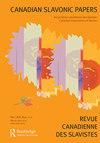Comics and nation: power, pop culture, and political transformation in Poland
IF 1.6
Q2 ETHNIC STUDIES
引用次数: 0
Abstract
minds of the current Russian leadership. In contrast, the book insists that the Belarusian people and the Russian people have followed different historical paths and have different experiences and self-identifications. It further argues that there are great differences in their cultures and languages, geographic environments, and opportunities for political influence. While the book makes several valuable points, its central argument is somewhat weak and not very convincing. That Belarus and Russia are two different countries is an indisputable fact. However, mentally organizing these countries as two different civilizations that clash (83) makes us oblivious to a number of complexities. First of all, epistemologically, the Huntingtonian “clash of civilizations” is rooted in political realism, which claims the inevitability of inter-civilizational clashes. It does not look into intra-civilizational diversity, and it presents each civilization as static, monolithic, and immutable. Such views ultimately ignore cultural, historical, and linguistic interpenetration among different civilizations. Moreover, Huntington’s “clash of civilizations” has been politically utilized and popularized by the Russian leadership in order to legitimize its claims. It is not clear from the monograph how helpful and necessary this framing really is. Secondly, the “clash of civilizations” is embedded in the epistemology of deterministic othering. For example, the author refers to Russia’s immutable “nature” (178), its inherent aggressiveness (169), and claims that “European culture is genetically closer to Belarusians” (194). Such labels and generalizations are somewhat inadequate, as they do not allow us critically to reflect and discuss the current reality. There are examples of European countries imposing high moral standards in efforts to come to terms with their own pasts. However, the argument that Russia, “formed thanks to the Golden Horde” (62), is inherently aggressive appears orientalizing and ultimately simplistic. Notwithstanding these critical reflections, the book provides a good basis for a profound discussion about the orientation of Belarus and its possible future. It is clear that in order to resist Russia’s influence, Belarus needs to reclaim its Europeanness. Challenging widespread myths and simplifications about Belarus, the book offers us needed perspectives on the country, which is now facing one of the darkest periods of its history and a very unclear future.漫画与国家:波兰的权力、流行文化和政治转型
俄罗斯现任领导人的思想相反,这本书坚持认为,白俄罗斯人民和俄罗斯人民走过了不同的历史道路,有着不同的经历和自我认同。它进一步认为,他们在文化和语言、地理环境和政治影响机会方面存在巨大差异。虽然这本书提出了几个有价值的观点,但其中心论点有些薄弱,不太令人信服。白俄罗斯和俄罗斯是两个不同的国家,这是不争的事实。然而,在心理上将这些国家组织为两种不同的文明冲突(83),使我们忽略了许多复杂性。首先,在认识论上,亨廷顿的“文明冲突”根植于政治现实主义,主张文明间冲突是不可避免的。它没有研究文明内部的多样性,而是把每个文明都描绘成静态的、单一的、不可改变的。这种观点最终忽视了不同文明之间的文化、历史和语言的相互渗透。此外,亨廷顿的“文明冲突”被俄罗斯领导层在政治上利用和推广,以使其主张合法化。从专著中我们并不清楚这种框架到底有多大的帮助和必要性。其次,“文明冲突”根植于决定论他者论的认识论之中。例如,发件人提到俄罗斯不可改变的“本性”(178),其固有的侵略性(169),并声称“欧洲文化在基因上更接近白俄罗斯人”(194)。这样的标签和概括在某种程度上是不充分的,因为它们不允许我们批判性地反映和讨论当前的现实。有一些例子表明,欧洲国家在努力面对自己的过去时,强加了很高的道德标准。然而,认为“由于金帐汗国而形成的”俄罗斯(62)天生具有侵略性的观点似乎东方化,最终过于简单化。尽管有这些批判性的反思,这本书为深入讨论白俄罗斯的方向及其可能的未来提供了良好的基础。很明显,为了抵制俄罗斯的影响,白俄罗斯需要重拾其欧洲身份。这本书挑战了关于白俄罗斯的普遍神话和简单化,为我们提供了了解这个国家的必要视角,这个国家目前正面临着历史上最黑暗的时期之一,未来也非常不明朗。
本文章由计算机程序翻译,如有差异,请以英文原文为准。
求助全文
约1分钟内获得全文
求助全文

 求助内容:
求助内容: 应助结果提醒方式:
应助结果提醒方式:


